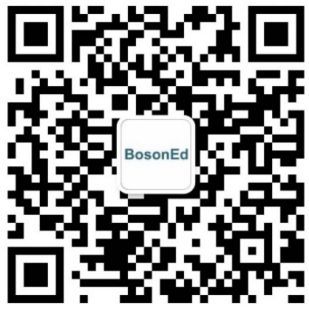How the 2024 Common App adapts to the post-Affirmative Action era?
August 1st marks the opening day for the Common Application, the system used by undergraduate applicants and transfer students in the United States. This date signals the final stages of the application season. However, this year's Common App has undergone significant changes due to the overturning of affirmative action, prompting various schools to urgently make adjustments, particularly in their supplemental essays. Additionally, many schools have revised their application requirements to adapt to the new landscape. Today, let's discuss the changes that various schools have implemented.
Harvard University
Harvard University, situated at the heart of this storm, has taken the lead in action. It has replaced the previously optional supplemental essay prompts with five mandatory short-answer questions (each answer limited to 200 words). One of these prompts is:
"Harvard has long recognized the importance of enrolling a diverse student body. How will the life experiences that shape who you are today enable you to contribute to Harvard?"
While the Supreme Court ruled that universities cannot consider an applicant's race, it opened the door to considering an applicant's racial characteristics or experiences. Chief Justice John G. Roberts Jr. wrote in the majority opinion: "Nothing in this opinion is intended to preclude an educational institution's consideration of the ways in which race might play a role in an applicant's life, whether through discrimination, inspiration, or any other means."
The University of North Carolina at Chapel Hill
Another school that is on the defendant's list is the University of North Carolina at Chapel Hill. Their two short-answer questions include one that asks students to describe an academic topic of interest to them. The other prompt is:
"Discuss one of your personal qualities and share a story, anecdote, or memory of how it helped you make a positive impact on a community."
This question encourages applicants to reflect on a personal attribute and narrate an experience, anecdote, or memory that illustrates how this quality contributed to a positive impact on a community. This emphasis on personal qualities and their real-world effects underscores the university's interest in understanding how applicants can contribute positively to their campus and broader communities.
Columbia University
Columbia University has introduced a new essay prompt, requiring applicants to describe an adversity within 150 words:
"In college/university, students are often challenged in ways that they could not predict or anticipate. It is important to us, therefore, to understand an applicant’s ability to navigate through adversity. Please describe a barrier or obstacle you have faced and discuss the personal qualities, skills, or insights you have developed as a result."
This prompt highlights the university's interest in evaluating an applicant's capacity to handle unforeseen challenges and setbacks during their college experience. By sharing a specific barrier or obstacle they have encountered, applicants are expected to elaborate on the personal qualities, skills, or insights they have cultivated as a direct outcome of facing such adversity. This question provides applicants with an opportunity to demonstrate resilience, adaptability, and personal growth, which are qualities Columbia values in potential students.
University of Virginia
The University of Virginia has recently released a new essay prompt, allowing applicants to showcase different aspects of themselves.
"What about your background, perspective, or experience will serve as a source of strength for you or for those around you at UVA?"
This prompt encourages applicants to reflect on their unique background, perspective, or experiences and consider how these aspects can contribute as sources of strength. The university is interested in understanding how applicants' individual qualities can positively impact not only themselves but also the broader UVA community. By addressing this question, applicants have the opportunity to share personal stories and insights that demonstrate their potential to enrich the university environment and support those around them.
Amherst College
We seek an Amherst made stronger because it includes those whose experiences can enhance our understanding of our nation and our world, We do so in the faith that our humanity is an identity forged from diversity, and that our different perspectives enrich our inquiry, deepen our knowledge, strengthen our community, and prepare students to engage with an ever-changing world.
Question:In what ways could your unique experiences enhance our understanding of our nation and our world?
Brandeis University
Brandeis was established 75 years ago to address antisemitism, racism, and gender discrimination in higher education, and today, the university remains dedicated to its founding values of inclusivity and justice. How has your educational experience shaped your perspective on these values?
In our previous webinar, we discussed this university. In fact, long before Asian Americans faced admissions discrimination, Jewish individuals experienced similar challenges. The recent and highly debated topic of affirmative action originally emerged as a response to the admissions practices affecting Jewish applicants. In order to address the perceived unfairness in admissions, Jewish individuals took matters into their own hands and established a university – this institution being Brandeis University.
Emory University
There are total 6 prompts, and two of them are related to diversity.
· Reflect on a personal experience where you intentionally expanded your cultural awareness
· Emory University has a strong commitment to building community. Tell us about a community that you have been part of where your participation helped to change or shape the community for the better.
Sarah Lawrence College
In a 2023 majority decision of the Supreme Court of the United States, Chief Justice John Roberts wrote, "Nothing prohibits universities from considering an applicant’s discussion of how race affected the applicant’s life, so long as that discussion is concretely tied to a quality of character or unique ability that the applicant can contribute to the university."
Drawing upon examples from your life, a quality of your character, and/or a unique ability you possess, describe how you believe your goals for a college education might be impacted, influenced or affected by the Court’s decision.
Babson College
A defining element of the Babson experience is learning and thriving in an equitable and inclusive community with a wide range of perspectives and interests. Please share something about your background, lived experiences, or viewpoint(s) that speaks to how you will contribute to and learn from Babson’s collaborative community.
University of Massachusetts at Amherst
At UMass Amherst, no two students are alike. Our communities and groups often define us and shape our individual worlds. Community can refer to various aspects, including shared geography, religion, race/ethnicity, income, ideology, and more. Please choose one of your communities or groups and describe its significance. Explain how, as a product of this community or group, you would enrich our campus.
Summary
The changes in college application essays are notably influenced by the recent Supreme Court rulings related to affirmative action. Schools aim to maintain their diversity through these essays. Therefore, it's crucial for applicants to pay special attention to this aspect during the application process.
Some students lack confidence in writing diverse essays, believing they don't possess unique qualities. However, this isn't necessarily the case.
Diversity is a broad topic, encompassing both macro-level discussions on ethnicity and micro-level stories about personal experiences. The essence of a diverse essay lies in narrating personal experiences and explaining how they've shaped the present version of oneself. An example from one of our previous students can illustrate this concept.
Suggestions:
- Don't limit diversity solely to ethnicity.
- Use your imagination to identify any aspect that sets you apart from others.
- Avoid showcasing a narrative of privileged experiences. For instance, refrain from writing about providing food or money to impoverished individuals, or participating in one-day charity events in rural areas.
- Emphasize the impact that your unique experiences of diversity have had on you.
Other Changes
· Hiding Race/Ethnicity Information: Another significant change is that, given the prohibition on considering an applicant's race or ethnicity, Common App now allows member institutions to hide this information. In an email sent to college counselors by Harvard University's admissions office, it was stated that while applicants to Harvard can still disclose their race/ethnicity through checkboxes on the Common App, all race/ethnicity information on the PDF application received by the admissions office will be redacted.
· Reducing Extracurricular Activity Count: Some schools, like Lafayette College, are reducing the number of extracurricular activities considered in the admissions process. Common App allows for listing up to 10 extracurricular activities, but Lafayette College's president, Nicole Hurd, stated that the school will stop reviewing after the 6th activity. For students applying in the Early Decision round, only 6 slots will be available for extracurricular activities.
Common App's data shows significant disparities in the number of submitted activities across almost all racial and income groups. Therefore, reducing the number of activities is a measure taken to enhance fairness. The extracurricular section on Common App serves as an opportunity for students to demonstrate their contributions to their families, schools, and communities. The focus should be on the substance of the activities rather than the quantity.
· Cancellation of Early Decision and Legacy Admissions: Virginia Tech announced the cancellation of Early Decision admissions and legacy admissions policies. Additionally, institutions like Carnegie Mellon University, University of Pittsburgh, and top liberal arts college Wesleyan University have also terminated legacy admissions policies.
All of these changes, in addition to being proactive adaptations to the Supreme Court's rulings, aim to guide applicants in deeply reflecting upon and expressing how their backgrounds and experiences have shaped them. This allows institutions to gain a more comprehensive understanding of applicants while ensuring fairness. Are you ready for these changes?

















